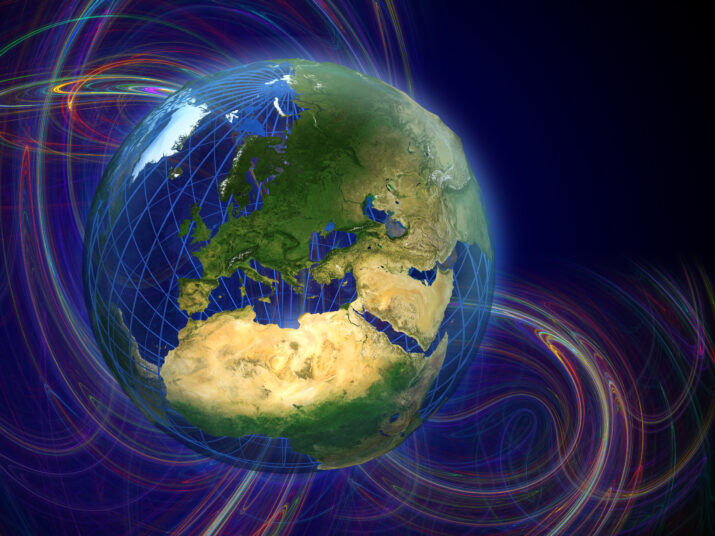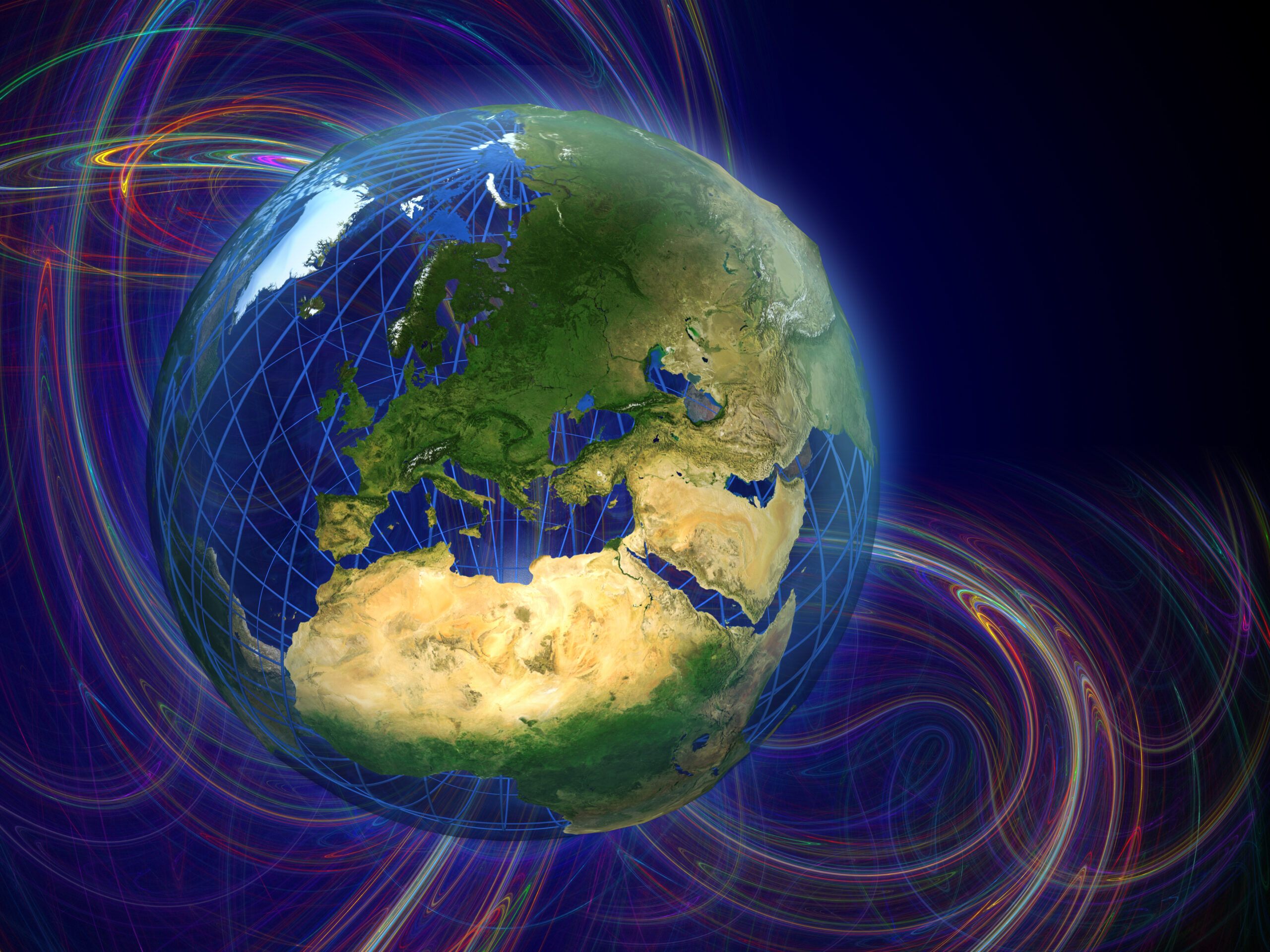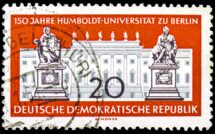

The global turn in historiography has presented an opportunity to challenge the Eurocentric biases of scholars of European history.[1] It has also renewed the way in which the histories of European nations are written, that is, by placing the global dimension at the center of historical narratives. Many recent books have attested to the growing popularity of this approach.[2] In this context, it may seem surprising that the global histories of individual European nations, such as France, Portugal, or the Netherlands, are now widely debated while that of Europe itself is much less so.[3]
Writing a global history of Europe requires a twofold decentering movement. This implies a consideration not only of the global nature of historical phenomena against Eurocentric biases but also of Europe as a unit of analysis in its own right against the tradition of methodological nationalism. This twofold decentering is made even more difficult by the fact that the global and European perspectives have often been seen as competing with each other, even developing rival research agendas.[4] Nevertheless, a global history of Europe is perhaps an even more necessary and crucial project than a global history of European nations. Indeed, some of the most important interactions between Europeans and the rest of the world have been European rather than purely national phenomena: think of the “Age of Discovery,” the early globalization of trade, colonization, the two world wars, the Cold War, and decolonization.
Envisioning a global history of Europe thus means much more than highlighting the influence of non-European regions and transcontinental encounters in European history. It means examining the intimate relationship between these two entities—Europe and the world—which have played a crucial role in each other’s emergence, formation, and integration. It means dealing directly with a question that has been at the heart of the concept of global history itself, namely the changing position of Europe, long seen as the ruling center of the world, before it was decentered and provincialized. It means investigating a great reversal.
In this short contribution, I propose a three-phase periodization of the relationship between Europe and the world that could serve as a basis for future research into the global history of Europe. I distinguish between imperial Europe, starting in the sixteenth century, subordinate Europe after World War II, and, finally, provincial Europe in the twenty-first century.[5] These three phases correspond to three paradigms in the Europe–world relationship, three levels of the centrality of Europe in the world. They highlight the fundamental reversal by which Europe made the world and the world made Europe.
How Europe made the world: imperial Europe
In the first phase of the Europe–world relationship, a Europe that was deeply divided among rival powers unified the globe through travel, trade, and conquest. This paradigm can be called “imperial Europe,” not so much to insist on Europe’s hegemonic position, which was only realized in the nineteenth century, but to highlight the fact that the world, as an interconnected space, was fundamentally a product of European expansion.
Globalization was born in 1522 when Magellan’s expedition completed the first circumnavigation of the globe. From an economic point of view, it began in the late sixteenth century when the Spanish set up regular trade between America and Asia, thus finalizing the interconnection of all the major regions of the world—Europe, Africa, America, and Asia. Further, political globalization resulted from, above all, colonization as well as the growing involvement of European powers in other continents. By the beginning of the twentieth century, more than 80 percent of the world’s territories had been, at one time or another, under European rule. World War I, a European conflict that took over the globe, particularly through the mobilization of colonies for the war effort, demonstrated that Europe was indeed the political and military center of the world. Finally, Europeans produced a globalization of mentalities. Because colonization was a global phenomenon, it ultimately generated a sense of common destiny across continents and civilizations. Japan’s victory over Russia in the 1905 war was celebrated by Chinese, Indian, Turkish, and Egyptian nationalists alike, highlighting a growing sense of global solidarity against European domination.
Power rivalry among European states played a decisive role in this expansion. In terms of capabilities, the intense military competition that prevailed among European states stimulated them to develop the technological edge that enabled them to undertake overseas conquests. In terms of motivation, European colonization was largely stimulated by the desire of different European powers to gain exclusive access to territories and resources to better compete against other European powers. Rivalry between the Spanish and Portuguese, the Dutch and Spanish, and the French and British were key driving forces behind the formation of a European empire over the world. In a famous speech in favor of colonial conquest, French parliamentarian Jules Ferry made the following argument:
Gentlemen, in Europe as it is, in this competition of so many rivals that we see growing around us […] the policy of recollection or abstention is quite simply the great road to decadence![6]
The paradigm of imperial Europe was thus based on two mutually reinforcing pillars: inter-European power competition and global expansion. Europe’s political fragmentation and the unification of the world as a European empire went hand in hand.
How the world made Europe: subordinate Europe
The second phase of the Europe–world relationship began after World War II and is almost the exact opposite of the imperial Europe paradigm. Not only did decolonization put an end to European global expansion, but the bipolar order of the Cold War also marked the subordination of European states to superpowers that were at least partly non-European, that is, the United States and the Soviet Union. These two major trends were crystallized in the 1956 Suez crisis, which saw the French and British back down in the face of Nasser, the embodiment of anti-colonial Third-Worldism, who was supported by both Moscow and Washington.
This inversion of the power relation between Europe and the world also led to an inversion of the causal relation between the two. It was no longer Europe that unified the world through expansion; it was the world that began unifying Europe by decentering and relegating it. Indeed, the subordinate position of both West Germany and France vis-à-vis the United States in 1950 was the crucial structural factor behind the origins of European integration. It was because Washington imposed the economic and military recovery of West Germany in the context of the Cold War that France was forced to rethink its relationship with its old rival in terms of association rather than pure power competition.
This link between European unification and Europe’s declining role in the world is also indirectly illustrated by the failure of the European army project in 1954. It was largely because the French military and decision-makers saw the formation of a European army with West Germany as a hindrance to French overseas deployments to colonial wars (in Indochina and North Africa) that they ultimately rejected it. In other words, because France still saw itself as a global power, following the old imperial paradigm, it was reluctant to embark on the path of European military integration. As General De Gaulle put it at the time:
What African, what Asian, would want to believe that, in the present state of the world, the fate of his own country should henceforth be associated with that of a France that would no longer even have an army of its own, at home?[7]
Conversely, the humiliation of Suez and the demonstration of the weakness of Europeans on the global stage facilitated the successful negotiation of the 1957 treaties of Rome on European economic integration. As then Belgian Prime Minister Spaak remarked:
Colonel Nasser’s bold move showed what a definite lack of esteem for the great European nations exists in certain quarters. […] The European nations are somewhat like scattered chicks. When they see a hawk hovering above them – whether in the form of Stalin or Nasser – they tend to come together.[8]
However, although Europe had lost its global power position, it remained the center of the world in another way, as the arena of and first prize in the superpower competition. Even at the outbreak of the 1950 Korean War, it was clear to US decision-makers that the priority region was Western Europe, so much so that they were convinced that the North Korean offensive could only be a diversionary operation in preparation for a major Soviet attack in Europe. The strategic importance of the European theater justified the definitive break of the United States with the traditional mental distinction between the “Western hemisphere” and the “Old World” and, instead, led it to view itself as part of a transatlantic “Western civilization.” With the 1949 North Atlantic Treaty, and even more so with the decision to permanently station several hundred thousand troops in Europe in the 1950s, the United States effectively became a major European power.
Whereas Europe’s declining power had favored its integration, the persistent strategic centrality of the European theater tended to inhibit European unification efforts in the military sphere. During the US Senate ratification debate on the North Atlantic Treaty, John Foster Dulles observed as follows:
It is quite possible that the historian may judge that the European Recovery Act and the Atlantic Pact were the two things which prevented the unity in Europe which in the long run may be more valuable than either of them.[9]
Indeed, strong US military support contributed to the relative underdevelopment of European defense cooperation, as illustrated by the failures not only of the early 1950s’ European army project—which was eventually replaced by West Germany’s integration into the North Atlantic Treaty Organization (NATO)—but also of the early 1960s’ De Gaulle-inspired Fouchet Plan. In both its successes and failures, the early stages of European unification thus largely reflected the evolution of global power competition and the relative decentering of Europe.
How the world is making Europe: provincial Europe
We are now witnessing the third phase in the Europe–world relationship in the context of the new bipolar competition between the United States and China. This time, not only do Europeans no longer dominate the world, but also, unlike during the Cold War, the European theater itself is no longer the strategic center of the world. Whereas in the early 1950s the United States intervened in Korea while considering Western Europe to be the most important region, today, it supports Ukraine against Russia while considering China to be its most important competitor.
The trade-offs between military aid for Ukraine and Taiwan are increasingly being discussed in Washington, and it is clear that in the event of a double front, East Asia would take precedence. This has led to a diminishing attachment to Europe, especially in the pro-Trump camp. As Senator J. D. Vance put it:
The time has come for Europe to stand on its own feet. That doesn’t mean it has to stand alone, but it must not continue to use America as a crutch.[10]
This provincialization of Europe comes at a time when the European Union (EU) is increasingly on a collision course with global power competitors. Militarily, Russia’s sphere-of-influence policy has been in direct conflict with the EU’s Eastern Partnership since 2013 and its enlargement policy regarding Ukraine since 2022. Economically, the global geoeconomic turn increasingly confronts the EU with the international security risks and vulnerabilities entailed by trade and interdependence, particularly regarding China. Whereas US support tended to inhibit any idea of a European power during the Cold War, the United States’ pivot toward Asia and the de facto geopoliticization of EU traditional policies are tending toward stimulating the EU’s efforts to become an international security actor. In other words, the new decentering of Europe might be shaping a new stage in European integration.
Conclusion: three European civilizations
Europe made the world; the world is now making Europe. While colonization fueled rivalry among European powers, Europe’s subordination during the Cold War and its provincialization today have been catalysts in its integration. This evolution reveals three different European civilizations, based on different kinds of relationships to the world and different kinds of relations among European states.
While the concept of “European civilization” is today a controversial one, promoted by some as a principle of humanism, or attacked by others as a product of colonialism and racism,[11] this global approach to European history invites us to “normalize” our conception of “Europe” and see it less as an exceptional entity that enlightened or disrupted the world than as a dynamic reflection of the world and the changing structure of global power competition. In other words, the meaning of “Europe” has changed, because its role in the world has changed.
Pierre Haroche is Associate Professor of European and International Politics at the Catholic University of Lille. He is the author of Dans la forge du monde : Comment le choc des puissances façonne l’Europe (Paris: Fayard, 2024).
[1] Dominic Sachsenmaier, “Recent Trends in European History: The World beyond Europe and Alternative Historical Spaces,” Journal of Modern European History 7, no. 1 (2009): 5–25; Alessandro Stanziani, Eurocentrism and the Politics of Global History (Cham: Palgrave Macmillan, 2018).
[2] Patrick Boucheron (ed.), France in the World: A New Global History (New York: Other Press, 2019); Andrea Giardina (ed.), Storia mondiale dell’Italia (Rome: Laterza, 2017); Marjolein ‘t Hart, Manon van der Heijden, and Karel Davids (eds.) The World and The Netherlands: A Global History from a Dutch Perspective (London: Bloomsbury Academic, 2023); Xosé M. Núñez Seixas (ed.), Historia Mundial de España (Madrid: Destino, 2018); Andreas Fahrmeir (ed.), Deutschland. Globalgeschichte einer Nation (Munich: C.H. Beck, 2020); Carlos Fiolhais, José Eduardo Franco, and José Pedro Paiva (eds.), The Global History of Portugal: From Pre-History to the Modern World (Liverpool: Liverpool University Press, 2021).
[3] David Motadel, “Globalizing Europe: European History after the Global Turn”, Annales HSS 76, no. 4 (2021): 645–667.
[4] Mathilde Harel and Uriel Gadessaud, “‘Il n’est plus temps de se draper dans ses bonnes intentions indignées’, une conversation avec Patrick Boucheron,” Le Grand Continent, 15 November 2019.
[5] Pierre Haroche, Dans la forge du monde: Comment le choc des puissances façonne l’Europe (Paris: Fayard, 2024).
[6] Journal officiel, Chambre des députés, 28th July 1885, p. 1670. My translation.
[7] Charles de Gaulle, Discours et messages. Volume II: Dans l’attente (1946–1958) (Paris: Plon, 1970), pp. 564–575. My translation.
[8] Paul-Henri Spaak, “The West in Disarray,” Foreign Affairs 35, no. 2 (1 January 1957): 184–190.
[9] North Atlantic Treaty: Hearings, Part 2 (Washington DC: US Government Printing Office, 1949), p. 369.
[10] J. D. Vance, “Europe Must Stand on its Own Two Feet on Defence,” Financial Times, 19 February 2024.
[11] Hans Kundnani, Eurowhiteness: Culture, Empire and Race in the European Project (London: Hurst, 2023).
Published on August 15, 2024.




